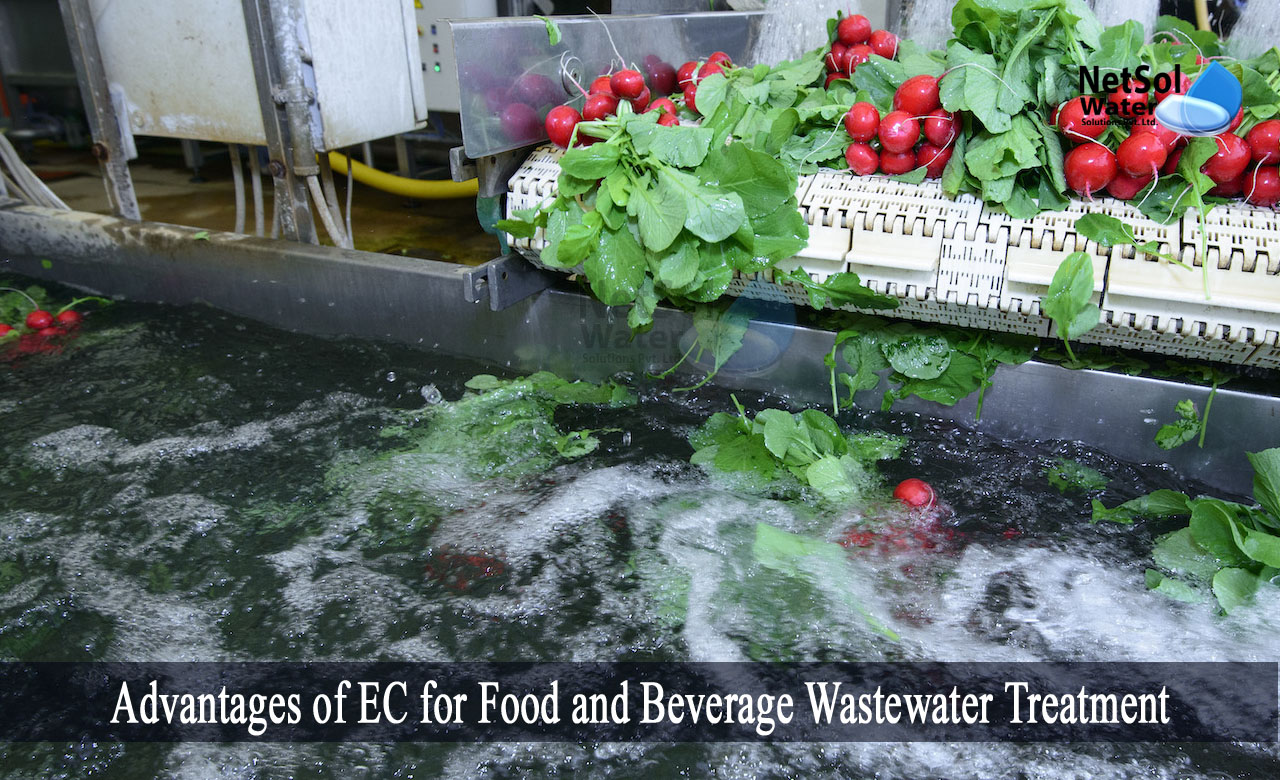What are Advantages of EC for Food and Beverage Wastewater Treatment?
With a global population of over seven billion people, there are hundreds, if not thousands, of industries producing the food and beverages, required to meet this global demand. These businesses require massive amounts of water to manufacture their products, and those products generate equal amounts of wastewater.
Electrocoagulation is an electrochemical process that is commonly used in primary treatment, to reduce a variety of wastewater constituents. This system solution is primarily used in food and beverage industries around the world, as part of an integrated food wastewater treatment system or beverage wastewater treatment system.
Advantages of Electrocoagulation for Food &Beverage Wastewater Treatment
1. Lower Raw Water Consumption
As previously stated, food and beverage industries use large amounts of water in their manufacturing processes. Water is perhaps the most used resource in food and beverage production, from ingredients to cleaning, to boiling and chilling. However, because of growing awareness of water scarcity in many parts of the world, reducing raw water consumption is strongly encouraged.
The best ways to reduce the use of freshwater resources are to use less water in the first place, or to reuse treated wash water or wastewater. In many cases, reducing usage can be difficult. However, after proper food wastewater treatment or beverage wastewater treatment, it is always possible to reuse wash water or wastewater.
Treatment for reuse can be expensive with some treatment methods, but not with EC. Electrocoagulation units have a lower lifecycle cost, because they do not require expensive additives or equipment. They are extremely efficient when properly optimized. A sufficient polishing, filtration, and disinfection system, followed by an EC process, can produce enough clean water to use as a process ingredient.
2. Operational Simplicity
Some water treatment systems are difficult to use and maintain, necessitating the use of several highly skilled operators. An EC system, on the other hand, is easy to use. The only typical adjustments would be to adjust the voltage applied, to the electrodes and the pH of the solution.
To prevent rusting, cleaning primarily consists of washing/rinsing the electrodes with an acid solution. Essentially, a good EC system requires very little staff to monitor the system, and replace the sacrificial electrodes, when they have corroded past their economic potential.
3. Lower Disposal Costs
One of the most difficult issues with wastewater is disposal. The typical questions are how to get rid of it and how much it will cost. There are costs involved with any special transportation required, but fines are the most expensive. Fines for discharging wastewater into the ecosystem can be staggering, due to the increased emphasis on and enforcement of environmental regulations. Wastewater can also be sent elsewhere to be safely disposed of, but this option comes with its own set of costs.
These disposal costs can be greatly reduced by using a food wastewater treatment system. The use of an electrocoagulation system on-site, as part of a treatment process can reduce contaminants to the point, where an industry may not be required to pay any governmental fines, for discharge to a sanitary sewer. Because, EC reduces the amount of dewatered solid waste left over from this treatment, transportation and safe disposal costs can be significantly reduced.
4. Environment-Friendly
Most wastewater treatment systems are environmentally friendly, because they can be used to protect against environmental water pollution. However, some solutions necessitate the use of hazardous chemicals, or simply large quantities of chemicals, that result in a large amount of solid waste after treatment. But, that is not the case with electrocoagulation.
Conclusion
The EC technique typically, only uses chemicals for the pH adjustment, which is easily neutralized. This system also generates less solid waste, which can frequently be reused elsewhere.
Electrocoagulation has numerous advantages, but the main points listed above include several of the most important advantages. EC has a lower lifecycle cost, is simple to operate, and is an environmentally friendly treatment system, with a lot of potential in beverage and food wastewater treatment applications.
How can we assist?
Netsol Water has successfully implemented these systems, with a number of clients in this industry. By using innovative and advanced treatment technology, as part of an integrated beverage or food wastewater treatment plant solution, the clients are able to significantly reduce their raw water consumption, as well as their operating and disposal costs.
Netsol Water is Greater Noida-based leading water & wastewater treatment plant manufacturer. We are industry's most demanding company based on client review and work quality. We are known as best commercial RO plant manufacturers, industrial RO plant manufacturer, sewage treatment plant manufacturer, Water Softener Plant Manufacturers and effluent treatment plant manufacturers. Apart from this 24x7 customer support is our USP. Call on +91-9650608473, or write us at enquiry@netsolwater.com for any support, inquiry or product-purchase related query.



